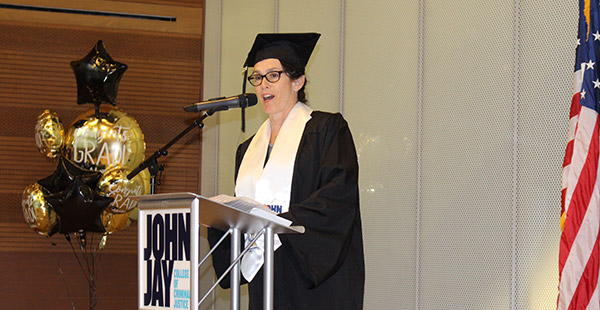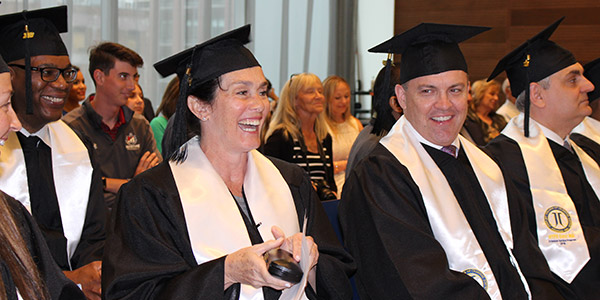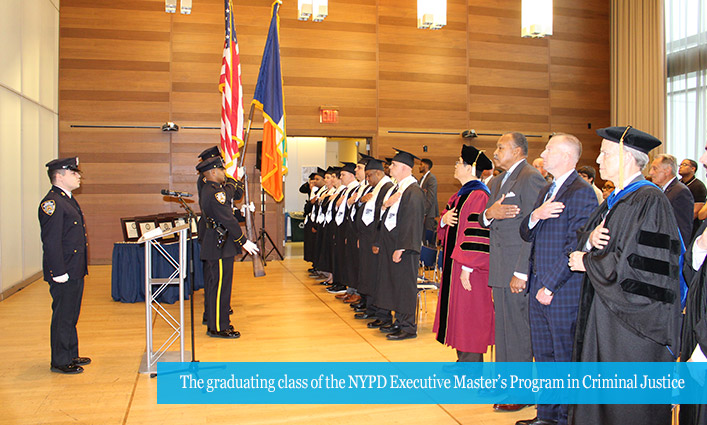
“These graduates are our future. They are the future leaders for the agency, and this program is making them even more valuable.” —Benjamin B. Tucker, NYPD First Deputy Police Commissioner
John Jay’s Executive Master’s Program is, as NYPD First Deputy Police Commissioner Benjamin B. Tucker says, “a perfect example of what happens when you have great synergy.” This program, a partnership with John Jay and the New York City Police Department, was created to educate officers to meet the current and future challenges of policing in their communities. And, on May 30, 2019, the College held its second graduation of the NYPD/John Jay Executive Leadership Master’s Degree Program in Criminal Justice. “This program is incredibly important for many reasons, but most importantly, it allows our Captains and above to get their graduate degrees, because as we all know, life can sometimes get in the way,” says Tucker. “The real idea here is to get them involved and keep them involved. These graduates are our future. They are the future leaders for the agency, and this program is making them even more valuable.”
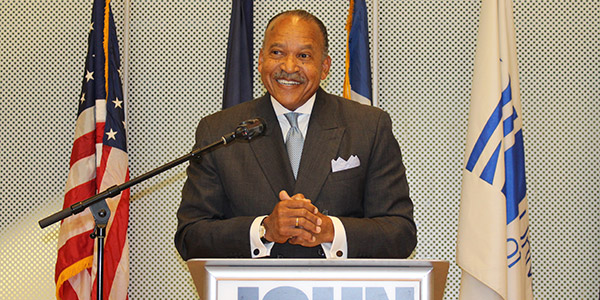
“The program made me look at things with a different, broader perspective, not just a police department perspective.” —Christine Bastedenbeck, Deputy Inspector and class valedictorian
The importance of the program and the invaluable education it imparts on NYPD leadership wasn’t lost on the class valedictorian, Deputy Inspector Christine Bastedenbeck. “I want to say that I’ve always had an open mind, but being in the police department for over 20 years, you kind of have a way of thinking. Coming into this school, and going through the coursework that we went through, working with the professors that we worked with, it expands your horizons,” said Bastedenbeck. “The program made me look at things with a different, broader perspective, not just a police department perspective.”
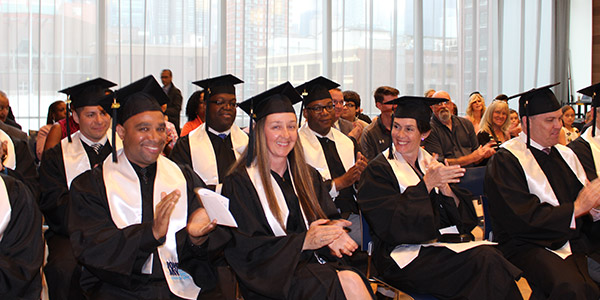

“Our students are partners in every sense of the word.” —Peter Moskos, Faculty Director
Professor Peter Moskos, the Faculty Director of the Program, highlighted the level of experience his students brought to the classroom. “It’s an honor for us in the faculty to teach all of these students, for nothing else but because they’re really, really smart. They know so much more about the subjects that we’re teaching,” said Moskos. “Our students are partners in every sense of the word, and for that, I applaud all of you.”
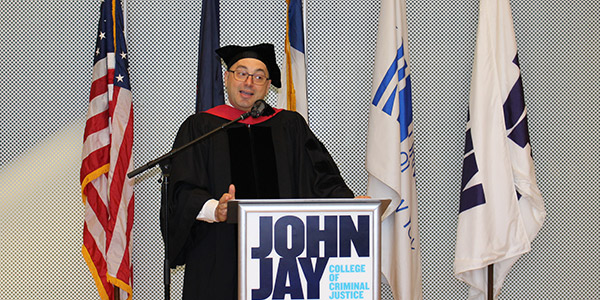
“A leader should have the highest integrity, and their compass should always point true north, which is incorruptible.” —Louis Anemone, NYPD Former Chief of Department
Special guest speaker, Louis Anemone, NYPD Former Chief of Department and program instructor, shared his thoughts on the objectives of the program and the leadership qualities it promotes. “The executives and the professors of this program all share a common goal, to learn from each other. I recall the emphasis that was placed on the vital aspects of good and great leadership,” said Anemone. “A good leader should never lead from behind. Leaders should never demand from their team what they would not do themselves. A leader should be trustworthy and reliable. A leader should communicate purpose with meaning. A leader should have the highest integrity, and their compass should always point true north, which is incorruptible.” He finished by telling the graduates that they have a huge responsibility to take what they’ve learned, and implement it into their respective NYPD departments. Anemone also reminded the graduates to look at the incredible legacy that came before them, and to use their knowledge in how they think, solve problems, and treat others.
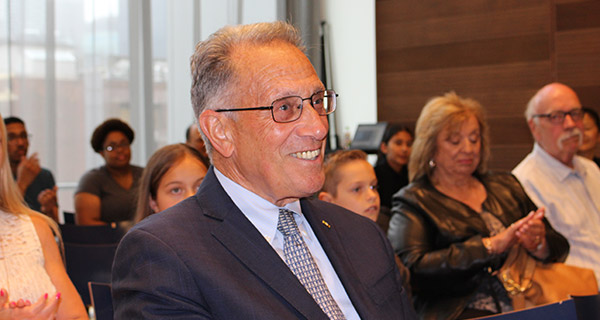
“I can’t thank the dedicated professors enough. They understand the police culture just enough not to let us default to cynicism, and they do it with a firm yet expository hand.” —Lori Pollock, NYPD Chief of Crime Control Strategies
Proudly representing her graduating class, Lori Pollock, NYPD Chief of Crime Control Strategies, had the crowd in stiches recalling a crazy dream she had about her classmates, their professors, and the pressures of the program. Then Pollock got serious about the milestone they had all reached together, and she acknowledged the people that helped them get there. “I can’t thank our dedicated professors enough. They understand the police culture just enough not to let us default to cynicism, and they do it with a firm yet expository hand,” said Pollock. “We have brought in our thinking. We have acknowledged that there is so much to learn. And, we understand that there can be a systematic way of attaining that knowledge and passing that knowledge along. Congratulations to my fellow students, who are also my colleagues and my friends.”
